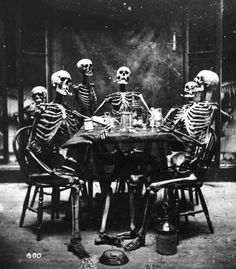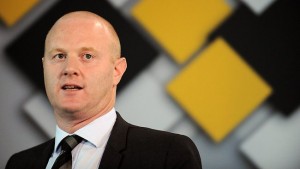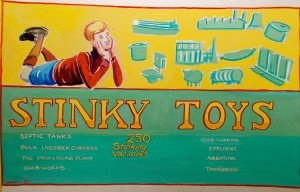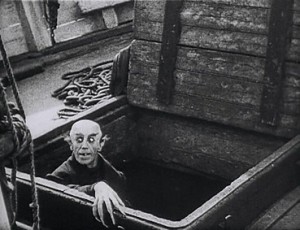Mr Narev, grand-master capitalist Emperor of mega-bank ‘Uncommon-wealth’ sat before the Senate enquiry onto the big banks today. After some questioning, and detailed compliments related to his tie, (‘very nice’) and shoes, (‘quite expensive’) he emerged from the first day and described the interrogation as; ‘Imagine being pelted to death with marshmellows?”. He evidenced no visible scarring, but we know he left the enquiry shaken, as some of the questions; “which exclusive and expensive restaurants do you usually indulge?” were just a little bit too invasive. Outside the Senate enquiry he promised to return the next day and tell the Senate of his plans for another European tour, and what he did with the last bonus, for being a cruel callous heartless bastard, and the fact, that he’s still troubled by having to pay some tax, (occasionally). In parting, he reminded us that the ‘banks are great, their investment brokers are wonderful, and people who get destroyed by dodgy brokers are just jealous’.
Whilst we’re in the region of whiffy behaviour, we have another installment on ‘Great Toys from yesteryear’, Toys of the Ming era, (1939-66), we hope it adds colour to the Banking enquiry.
Stinky Toys, an offshoot of Dinky toys, were the first ever mass produced plastic toys designed to stimulate the olfactory senses of young children. Enthusiastically endorsed by the Public Olfactory Nuance Group, (PONG). The group believed the development of scent to be as important as sight, touch and hearing in the development of young minds. The range included scent enhanced plastic moulded manufactured goods and buildings; Factories, Tanneries, Melting down works, Septic tanks, Piggeries and Night soil cart accessories.
Initial orders were encouraging, with eager parents responding to the call for more sensory and explorative toys.
After receiving outstandingly favourable reviews in “Modern Child”, “Breast-fed”, and “Nurture magazines”, the advanced orders accelerated from child minding centres, creches, and kindergartens, where it was felt that playing with such toys would be a boon for children from sensory deprived, (poor) backgrounds. Social scientists were keen to familiarise those ‘lower tier’ individuals with a familiarity of unpleasant odours so often associated with agricultural industries and some of the more primitive animal product extractive industries. It was felt that such exposure would ‘both familiarise and acclimatise them to a life of unspeakable drudgery up to their eyes in cow shit or embalmed in the noxious stench of the tannery works’, (official document)
It was also argued that such “ scented toys” would be entirely beneficial for the the more ‘well-to-do’ modern parents and ‘devotees to the Dr Spock mantra of idealised self expression who desired a firmer, more grounded set of developmental experiences for their children before they were despatched to alternative schools’.( another official document)
The Stinky Toys design department, seeing the opportunities began to devise toys with an entirely new range of aromatic qualities, Soup works Stock-feeds, Dairy processors from the agricultural sector, and perfumes, antiseptic and formalin scented toys for the more, “ white collar’ orientated market. Then tragedy struck. Reports filtered in that entire shop window displays had been consumed by blowflies. And in one celebrated incident the store was ‘run through’ by a pack of stray dogs on remand from the pound. Tragically the toys were recalled when housewives, by then, (late 1950’s) conditioned to cleaning products complained about the odours, and were worried about younger children ingesting whole toys. Several asphyxiations occurring when younger children, ( toddlers) tried to consume whole toys in the mistake belief that they were actual foodstuffs
The toys were subsequently removed from sale and the operation closed.




